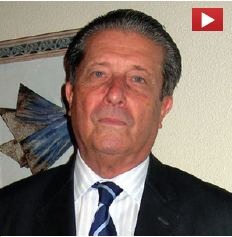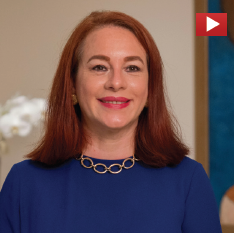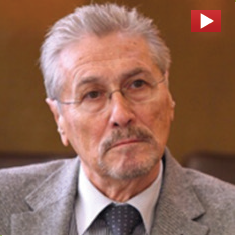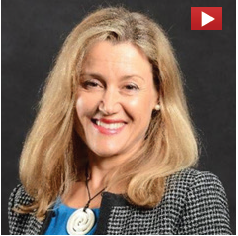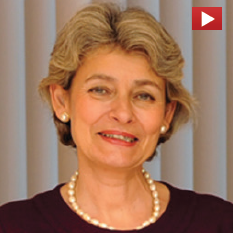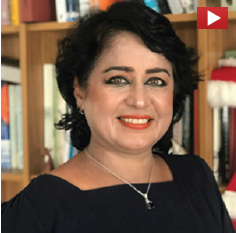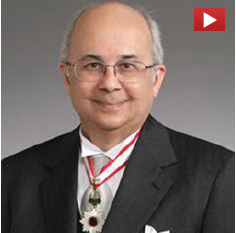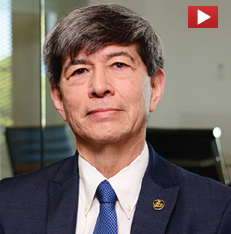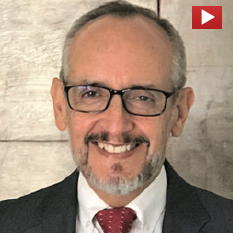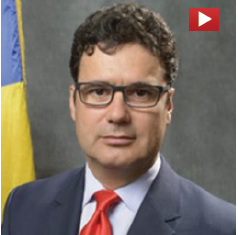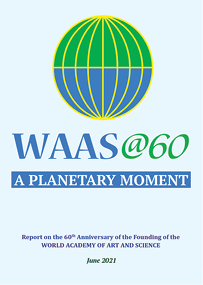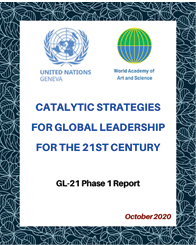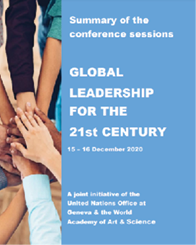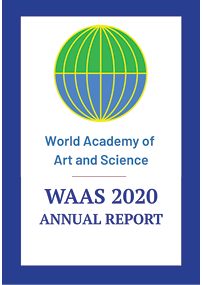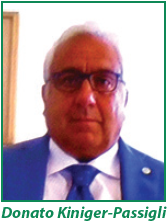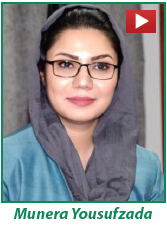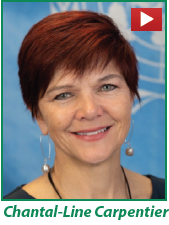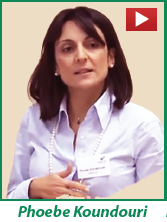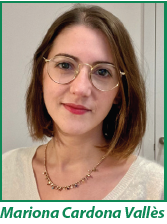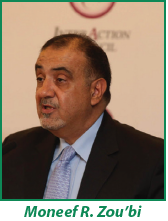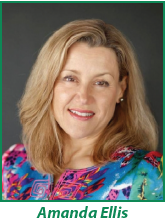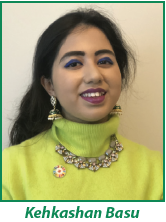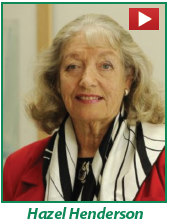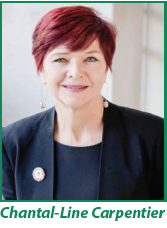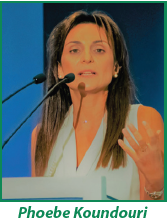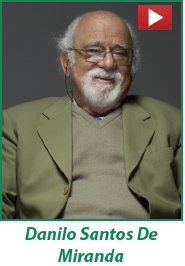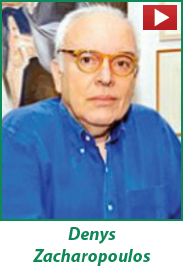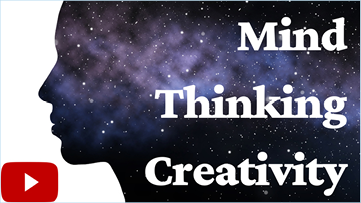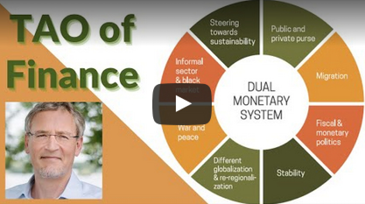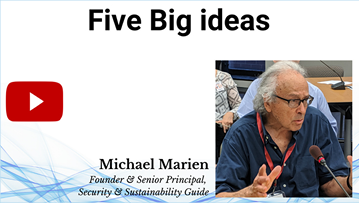Click here to download PDF
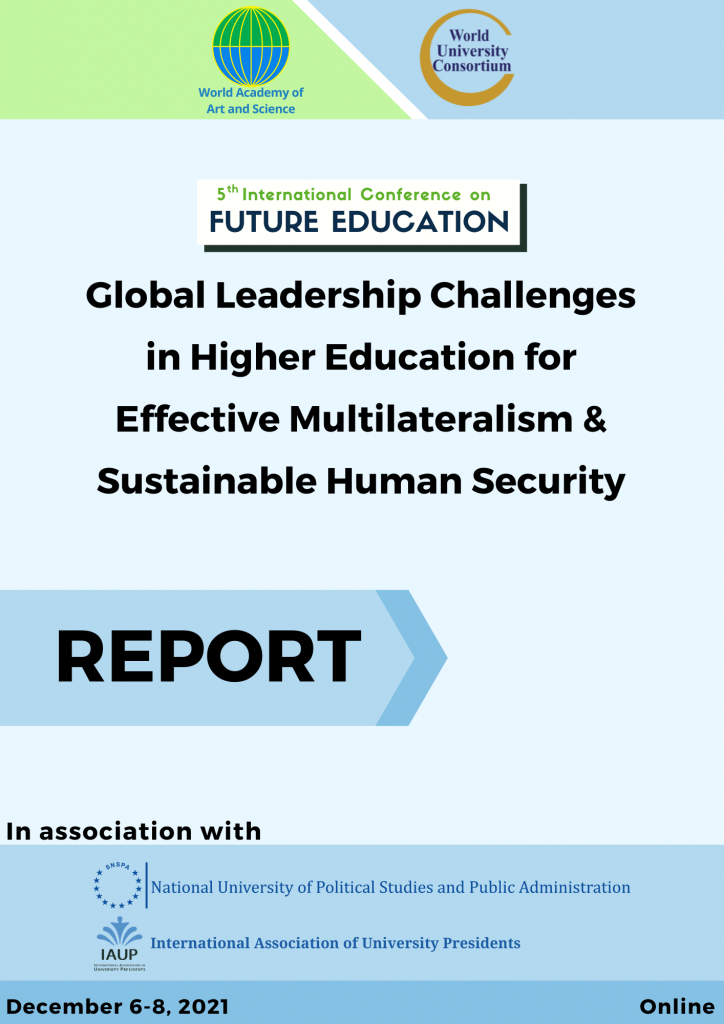
Contents
- Executive Summary
- Innovating Delivery Systems for Global Higher Education
- 21st Century Pedagogy
- Mind, Thinking and Creativity
- Values, Ethics & Social Impact in Education
- Education for a Culture of Peace & SDGs
- Education for Societal Transformation
- STEAM and Beyond
- Education for Human Security and a Culture of Peace
- From Competitive National Security to Human Security for All
- Educating Leaders for a Different Future
- Equity Impact at Scale: Collaborations Moving the Levers of Access
- Education for Sustainability: Adapting to the Future
- STEAM Leadership: Integrating Values, Innovation, Creativity & Social Impact
- The Jena Declaration on Higher Education & Learning
- Paper Presentations
- The University Beyond the Walls – ISACCL
- Transformative Power of Education for Women’s Leadership
- Education to Meet the Challenges of the 21st Century
- Arts & Education
- Integration of Arts & Science in Higher Education
- List of Contributors

Global Leadership Challenges in Higher Education for
Effective Multilateralism & Sustainable Human Security
Executive Summary
Education is an essential instrument and catalyst for social transformation. WAAS has long recognized the urgent need for thinking beyond existing models of education to complement and enhance the social impact, reach, accessibility, quality and affordability of education globally. Today it is evident that systemic change is needed in every aspect of education—including research, knowledge generation, delivery systems, evaluation, accreditation, content, pedagogy, and teacher training.
The unprecedented pressure and complexity of the multidimensional challenges confronting humanity today have generated an urgency which compels us to harness the powers of education more fully and effectively than ever before in all fields and at all levels of global society. The world needs a comprehensive global strategy that makes far better use of the existing resources, utilizes the potential of Information and Communications Technology (ICT), and applies innovative, learner-centred pedagogy to provide affordable, interactive, personalized, relevant, quality education for all.
Even as universities try to overcome the individual problems they face and governments frame policies and invest resources to improve the reach, relevance, financial viability and effectivity of regional and national education, WAAS and WUC are thinking globally for solutions that will be optimal from the perspective of humanity as a whole. The enormous challenges we face in education today can best be solved only by including system-wide action at the global level. A new paradigm needs to be formulated, designed and implemented.
The conference was one more step in the Academy’s efforts to mobilize the full potentials of higher education as an essential foundation and catalyst for addressing the global challenges, and ensure effective multilateralism and sustainable human security for all. It called for rapid and radical measures at all levels around the world to disrupt, enhance and transform the current system while embracing complementary innovative strategies to harness emerging technological capabilities. Its various sessions identified different aspects of the new paradigm.
Our challenges are but symptoms of a more profound systemic civilizational crisis that can be understood as a profound fracture of the relationship between humans, politics, economy and nature.
– María Fernanda Espinosa
We need fundamental changes not only in our public policies and institutions of governance, business and civil society. We need changes in our educational system. At a deeper level, we need key changes in the ideas on which our educational system is based. We need a new view of knowledge. We even need to change the way we think. We do not have the luxury of a slow, trial and error process of social evolution. We need to understand the principles of change and the process of conscious social transformation. The WAAS-WUC Fifth International Conference on Future Education sought to identify critical changes in education needed to more effectively address global social challenges.
All the critical issues humanity faces—ecological, economic, political, military, security, social—are interrelated, interdependent components of a larger whole. Education plays a critical role in handling all the components and their interrelationships.
Equitable, Inclusive Education: Societal inequalities of income, class, gender and ethnicity impact the access to education, and paradoxically, access to education is one of the best social equalizers. The pandemic has widened the already enormous qualitative gap between the small, elite, exclusive group of world-class institutions and the tens of thousands of institutions with high vacancy rates among faculty, underfunded and inadequate facilities, and poor learning outcomes. Affordability represents a critical challenge that impacts access to learning and therefore equality of opportunity. The total US student loan debt outstanding in 2020 was $1.6 trillion. More than 60% of Chinese parents and 70% of Indian parents spend over a third of their income on their children’s education. We need a globally well-orchestrated effort to make quality education equitable, accessible and affordable to all.
Transdisciplinarity: The rapid accumulation of information has fuelled a multiplication of disciplines, resulting in a progressive narrowing of field and scope of knowledge in each specialized discipline—so higher levels of specialized expertise are accompanied by decreasing width and breadth of knowledge even in closely related fields. Thus, specialization simultaneously enhances and limits the knowledge and competency of specialists. Treating each academic discipline as a separate compartment of self-contained knowledge and pursuing it in isolation results in fragmented knowledge. Silo-based academic knowledge has become increasingly mechanistic, reductionistic, divorced from wider social context, human needs and values. We need a transdisciplinary education that possesses the depth and insight to plumb the rich complexity of life and the world. An education that provides students with inter-sectorial, integrated perspectives is essential to equip them to meet the challenges of the future.
Changing Role of Educators: When all the information in the world is available as text, audio and visual material to anyone, anywhere with a digital device and an internet connection, instruction in the classroom is no longer the sole or best source from which students can acquire information. When information can be obtained anywhere at any time, classroom-time spent with teachers and peers can be used more creatively and effectively. More than teachers, we need facilitators who promote values-based learning. Adapting to these changes requires a reorientation in the role of the teacher from instructor to facilitator and in the methods for interaction with students.
Good educational content, pedagogy, infrastructure and technology are of little use in the absence of good educators who know how to implement them. We need to retrain teachers and empower them to become effective facilitators of learning and role models of ethics and sustainability.
– Emil Constantinescu
New Pedagogy: Globally, nearly 50% of employers acknowledge a skills gap in their workforce today, and the rest expect it in the next few years. This points to an outdated and ineffective teaching and learning model that emphasizes passive transmission of knowledge from instructor to student, instead of a model that supports teamwork, communication, collaboration, networking and leadership skills. We need a new pedagogy of learning, one that is relevant to today’s world and utilizes the potential that Information and Communications Technology (ICT) and other recent developments offer.
Opportunities Offered by ICT: Global tertiary enrolment is projected to rise from 216 million in 2016 to 380 million by 2030 and nearly 600 million by 2040. Shortage of teachers, classrooms, textbooks, funding and other resources cannot be bridged using existing teaching and learning methods. It is only with the help of ICT that this demand for higher education can be met. Online education cannot replace face-to-face interaction and interpersonal relationships in the classroom. But it clearly has an important role to play in the future. Its problems can be addressed in a fraction of the time and cost of expanding conventional delivery systems to accommodate the growing number of students.
The digital space opens up new possibilities not available in traditional classrooms. Open Educational Resources (OER) give students access to a wide selection of no-cost sources. This digital content can be revised and updated constantly at a speed that printed books cannot keep pace with. The up-to-date curricula can be personalized to meet individual aspirations. Technology also makes it possible for us to tap a huge reservoir of unused and underutilized educational resources in retired lecturers, professionals and non-academic subject experts. Every institution, regardless of its geographic location, funds and infrastructure, can access the best expertise available anywhere in the world on every subject. ICT makes it possible, for the first time ever, to provide every human being with the means to acquire an education that is personalized, selfpaced, person-centred, relevant, integrated, affordable and of high quality.
Separating Learning, Assessment and Certification: OER and access to knowledge from non-traditional sources are deinstitutionalizing learning. Universities are no longer the sole repositories of knowledge and teachers are no longer the primary medium for the transfer of knowledge. New assessment systems that gauge quality as well as quantity, and systems that support the acquisition of a wide range of competencies are emerging. Recent trends such as competency-based education, microcredentials, career certificates, and nanodegree programs are separating knowledge delivery from credentialing. Decoupling the educational and certification processes can make both more effective.
Integration of Art and Science: Art and Science are not two separate and incommunicable worlds, but two complementary branches that can converse and converge with one another to generate true knowledge. Science without Art is unimaginative and mechanistic. Art, through a scientific approach, transforms abstract knowledge into concrete applications. Education needs to take serious efforts to accelerate the integration of these complementary perspectives in various forms of knowledge discovery, transmission and application.
The arts and the sciences must collaborate, and though it is not easy, it is a journey that all universities need to embark upon.
– Amanda Natalie Ellis
Integrating these two complementary streams of knowledge equips students with the skills and capacities to generate holistic and sustainable solutions for the challenges we face. Aesthetic education has a positive impact on academic achievement, social and emotional development, civic engagement and equal opportunities. Culture acts as a catalyst for economic and social development. Learning the arts can also improve motivation, concentration, confidence and teamwork. STEAM education seeks to integrate the two streams to foster innovation and creativity.
Education for Human Security and SDGs: The Academy’s founders were motivated by the realization that science and arts have an imperative responsibility to ensure that the creations of the human mind should promote the security, welfare, and well-being of humanity. The secular values of objective science and the human values of the subjective arts are complementary perspectives that need to be combined and reconciled in order to generate humane knowledge for sustainable human security and well-being. Much of the nationalism, nativism and xenophobia we witness today are rooted in fear of the other, and this can be prevented and countered through education.
Education is where our future lies. It is through the arts and humanities that we understand social transformation, embrace our own as well as others culture and history, handle the complexity of globalization, and recognize cultural diversity as a strength rather than as a threat.
– Irina Bokova
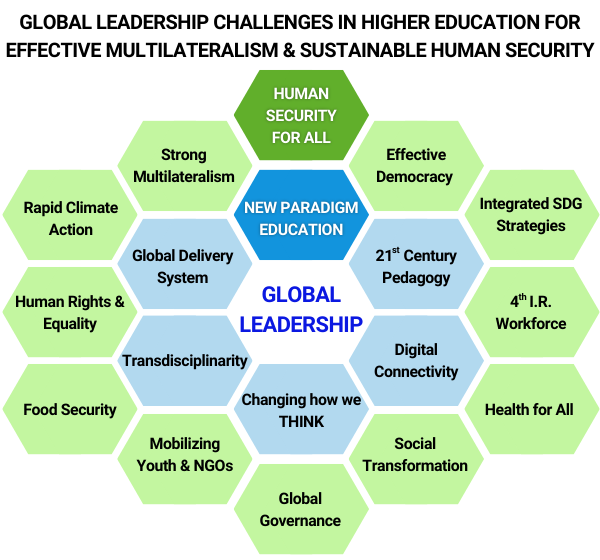
Developing Individuals and Leaders: Better education both requires and results in more effective leadership. An education that prepares youth for the various unknowns of the coming decades requires at the helm of education and policy making leaders who think and act globally. The current pandemic has been disruptive enough, but its magnitude and long-term impact will be insignificant compared to what could be expected from climate change. Apart from a future-proof method that will not be held hostage to the unknown disruptions of the future, we need farsighted leaders and adaptive educators who can prepare youth for any kind of future.
Original Thinking and Creativity: Our greatest achievements are products of our minds. So too, the existential problems confronting humanity today are products of the way we think. We need an education that can enhance our understanding of the analytic, abstract mode of thinking characteristic of disciplinary silos, increase our awareness of its inherent limitations and blind spots, and develop the capacity to think in a more contextual, inclusive and integrated manner outside the confines of our existing conceptual frameworks. If we can teach our youth to broaden the range and enhance the quality of thinking by making conscious the implicit assumptions and barriers that confine it within narrow boundaries, the limits to the prevailing conception of rationality, and the creative potential that can be tapped by more integrated perspectives, we can develop each individual, and create a productive, responsible global citizenry.
The Value of Values, Ethics and The Social Responsibility of Knowledge: WAAS founding motive comes from the conviction that academic knowledge cannot be separated or divorced from the social responsibility for how the knowledge is used. We see with increasing clarity the importance of values, ethics, social impact and social responsibility in our youth. We need an education that integrates these subjective elements into the content and pedagogy of all disciplines and levels of learning. Ethics in science is critical to ensure that scientific knowledge and new technologies do not counter human rights and nature’s rights. Not everything that is technically feasible is ethically desirable.
Data, when organized, becomes information. Information, when explained, becomes knowledge. But we need more. We need wisdom and wisdom must involve values, beliefs and ethics.
– Ismail Serageldin
The social responsibility of knowledge and educational institutions becomes greater and more significant in the face of technological advancement and the blurring of the lines between the physical, digital and biological spheres.
Future of Traditional Educational Institutions: Our traditional educational institutions will have to become more open and flexible to keep up with the times. Schools and universities will continue to remain valuable because of the much needed interpersonal relationships and a sense of identity and belonging they provide to youth. At the same time, distance, online and guided learning will grow. Lifelong education will become imperative. Transformed libraries, museums, archives and exhibits will aid learning. The dominance of degree and just in case education will diminish, making way for non-degrees and just in time education. The future is going to be competency-based. We are moving from the university to a multi-versity—multiple constituents, multiple modes of delivery, and multi-disciplinary among other things.
University leaders need to develop a bifocal view. They need to ensure stability and balance in the present times, while at the same time anticipating and planning for the future. Similarly, they need to impart specialized academic knowledge and precise skills, while also developing the whole person.
– Fernando León García
Future university education will have to be individualized and personalized. The pandemic has taught us that student mental health will be very important in the future. Educational institutions must seek and develop talent in all, and enable every individual to realize one’s potential within.
Universities need to connect to the community much better. They have a growing responsibility to translate the goals of sustainable development into action through research, leadership, and campus operations. They need to foster skills both for the 17 SDGs and also for the emerging challenges of the fourth industrial revolution. They need to create in young people critical thinking and the capacity to embrace change. This becomes the new intellectual challenge as well as the organizing principle for universities.
The true purpose of education is to build a better future by nurturing capable, well-rounded and value-driven human beings who are committed to lead and shape the communities in which they live.
– Francisco Marmolejo
Some of the experimentation, creativity and innovation will come from within the existing institutions. More will come from outside in response to a global aspiration.
Conclusion: Education is humanity’s most powerful instrument for conscious social transformation. Building on insights from the UN-WAAS project on Global Leadership for the 21st Century, this conference addressed the challenges and opportunities in higher education today to identify catalytic strategies to strengthen multilateralism, implement the 17 SDGs, and provide Sustainable Human Security for All.
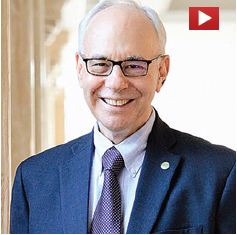
This conference took an important step towards understanding the evolution of global education from the point of view of the whole world—the whole of humanity, all of the sectors and dimensions of society, all disciplines, national and global society, and all institutions and individuals. This understanding is essential for accelerating the integration of education and society so essential for addressing the pressing challenges of today and the future.
– Garry Jacobs
This conference is a contribution towards answering several essential questions about education we have today. In its 23 sessions that involved 110 speakers and about 200 participants, it examined higher education from the perspective of the needs of the whole world for peace, global governance, equitable and sustainable human security. It explored the potential of innovative parallel delivery systems to complement the existing institutional structure in order to be much more inclusive, flexible, adaptive, accessible and affordable. It focused on the urgent necessity of breaking down disciplinary silos to address the complexity and integration of real world issues. It emphasized the need for closing the artificial gap between the sciences, the arts and humanities in order to provide a more synthetic perspective of social reality. It called for profound and fundamental changes even in the type of thinking that is applied, developed and fostered for knowledge formulation, relevance and creativity. It identified catalytic strategies, nascent initiatives and untapped potentials that can be harnessed to accelerate the shift in the direction of higher education in order to close the gap between social needs and educational content, between disciplinary perspectives, between teaching and learning, between objective and subjective forms of knowledge, and between individual aspirations and global social needs.
The conference fulfilled its central aim: to envision the development of a global system of education capable of more effectively promoting human equality, human rights, human security and sustainability of life on this planet. Through this conference, WAAS and WUC aim to usher in a new paradigm of human development through a paradigm shift in our education system.
– Remus Pricopie
Follow us on social media
Reports on Earlier Conferences
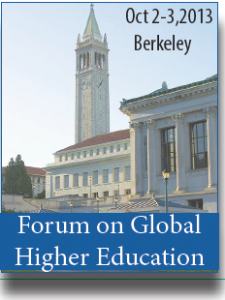 Forum on Global Higher Education — Oct 2-3, 2013, Berkeley. This Forum examined the impact of educational technology on accessibility, affordability, quality, relevance, employability and content of higher education. It led to the founding of the World University Consortium to explore creative solutions to enhance the reach, quality and relevance of higher education globally.
Forum on Global Higher Education — Oct 2-3, 2013, Berkeley. This Forum examined the impact of educational technology on accessibility, affordability, quality, relevance, employability and content of higher education. It led to the founding of the World University Consortium to explore creative solutions to enhance the reach, quality and relevance of higher education globally.
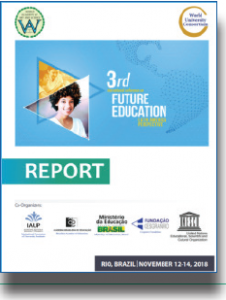 Future Education: Latin American Perspectives — Nov 12-14, 2018, Rio de Janeiro. The challenges we face today necessitate radical transformation in our way of thinking and acting. Such a transformation is only possible when it begins with the way we educate our youth. The Conference brought together leading educators and leaders to showcase innovative approaches and success stories in education.
Future Education: Latin American Perspectives — Nov 12-14, 2018, Rio de Janeiro. The challenges we face today necessitate radical transformation in our way of thinking and acting. Such a transformation is only possible when it begins with the way we educate our youth. The Conference brought together leading educators and leaders to showcase innovative approaches and success stories in education.
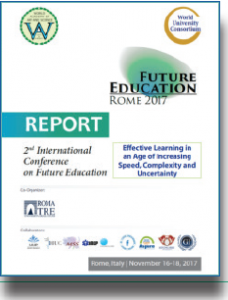 2nd Intl Conference on Future Education — Nov 16-18, 2017, Rome. The Conference recognized the need for a paradigm shift in the way we teach and learn in order to meet the challenges confronting global society. It identified practical measures to meet the needs and aspirations of all stakeholders— students, teachers, employers, workers, research institutions, governments and civil society.
2nd Intl Conference on Future Education — Nov 16-18, 2017, Rome. The Conference recognized the need for a paradigm shift in the way we teach and learn in order to meet the challenges confronting global society. It identified practical measures to meet the needs and aspirations of all stakeholders— students, teachers, employers, workers, research institutions, governments and civil society.
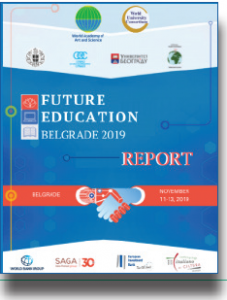 4th Intl Conference on Future Education — Nov 11-13, 2019, Belgrade. The conference examined effective policies and pedagogies to accelerate a paradigm change in education. It explored ways to overcome disciplinary barriers to provide integrated knowledge, methods to shift the focus from subject to students, and ways to promote capacities for creative thinking, personality and individuality.
4th Intl Conference on Future Education — Nov 11-13, 2019, Belgrade. The conference examined effective policies and pedagogies to accelerate a paradigm change in education. It explored ways to overcome disciplinary barriers to provide integrated knowledge, methods to shift the focus from subject to students, and ways to promote capacities for creative thinking, personality and individuality.
Session Summaries |
Innovating Delivery Systems for Global Higher Education

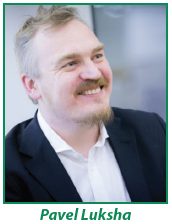
![]() The growing collegeage population and rising demand for tertiary education worldwide result in an ever-increasing quantitative gap between educational aspirations in society and the capacity of the current system to meet the demand. We need to be able to expand our education system to include 100s of millions of more students in order to bridge the gap and ensure equity and universal access. The panelists in this session agreed that traditional higher education alone cannot meet this need. Place-based education is an essential foundation for the new systems of the future, but it cannot be the only answer. This is the moment to consider disrupting the system.
The growing collegeage population and rising demand for tertiary education worldwide result in an ever-increasing quantitative gap between educational aspirations in society and the capacity of the current system to meet the demand. We need to be able to expand our education system to include 100s of millions of more students in order to bridge the gap and ensure equity and universal access. The panelists in this session agreed that traditional higher education alone cannot meet this need. Place-based education is an essential foundation for the new systems of the future, but it cannot be the only answer. This is the moment to consider disrupting the system.
ICT is an essential part of the solution we seek. Online engagement in certain areas of knowledge can effectively accomplish in weeks what would otherwise take months. This can result in shortening the time frames and lowering costs. However, using ICT does not mean taking a traditional model and putting it online. Delivering quality at scale using technology requires great thought and planning. It involves reconstructing the whole system from the ground up.
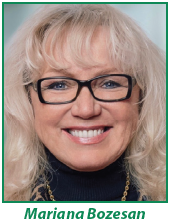
Educational delivery has to be designed from the inside out to deliver quality at scale. Integration with employers is important. We cannot achieve scale without integrating with employers and serving the needs of industry and business. We have the tools, capacities and capabilities to create the change we need. What we need is a joint global understanding and effort. We need commonly accepted and mutually beneficial standards of quality educational materials across the board. Common, independent standards of quality will allow us to develop competency-based education where certifications can be developed by independent actors. Easy transfer of credits is key for increasing the flow of resources and information across the sector and development of stackable microcredentials which allow institutions and students unprecedented freedom and mobility. We need to innovate a regulatory framework that allows for innovation. Separating knowledge delivery from credentialing will decouple the delivery and certification processes, and democratize education. The very definitions of excellence and quality need to be redefined. Through adaptation, innovation and a joint global effort, it is possible today to extend education to include every learner in the world.
21st Century Pedagogy


Higher education that began with a focus on a mere handful of subjects today offers more than 1000 disciplines and subdisciplines. Fuelled by the rapid accumulation of information, this multiplication of disciplines results in a progressive narrowing of field and scope of knowledge in each specialized discipline, decreasing the width and breadth of knowledge even in closely related fields. Transdisciplinary perspectives, customized and personalized curricula, and contextualized knowledge are essential for relevance and effectiveness in our increasingly complex world. This session explored the contours for this much needed radical shift in pedagogy. The panelists agreed that the world is at a critical crossroads. The pressures of climate change, food security, water security, public health, and other issues have pushed our planet into a buffer zone. We have created this situation, but we can also take the pressure off by taking responsibility and action.
Academia in particular has a mandate from society to provide knowledge that leads global society to a secure and sustainable future. Institutions are siloed into schools, colleges, disciplines and administrative services. In the place of these silos, we need better networked institutions that focus not on specific research but on holistic solutions. We need a framework that integrates silos and mindsets. Teachers need to be trained to embrace this change, teach it to students, and train future generations of teachers who can similarly see the whole. We are producing information at an unprecedented rate. What we need to provide is systems-based, complexity-based, holistic knowledge that can help future citizens come up with solutions. We have to provide support for decision makers. Our students must be trained in future and anticipatory thinking. Life-long learning, collaboration, communication, leadership, growth mindset, critical thinking, problem solving and other employability skills cannot be given through a single course or workshop. They need to be embedded in the curriculum at all levels.
WAAS Publications
CADMUS
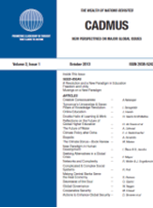
Cadmus is a twice-yearly print and electronic journal focusing on issues related to economy, security and global governance. It is a journal for fresh thinking and new perspectives that integrate knowledge from all fields of science, art, and humanities to address real-life issues, inform policy and decision-making, and enhance our collective response to the challenges and opportunities facing the world today.
Eruditio
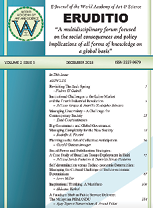
Eruditio is a twice-yearly electronic journal for the examination of ideas and perspectives that fall beyond the purview of traditional academic publications. It is a multidisciplinary forum focused on the social consequences and policy implications of all forms of knowledge on a global basis. The vision of the e-journal complements and enhances the World Academy’s focus on global perspectives in the generation of knowledge from all fields of legitimate inquiry.
| Click here to subscribe to free electronic versions of Cadmus & Eruditio |
Mind, Thinking and Creativity

Our greatest achievements are products of our minds. So too, the existential problems confronting humanity today are products of the way we think. The discussions in this session sought to consciously enhance our understanding of the analytic, abstract mode of thinking characteristic of disciplinary silos, increase our awareness of its inherent limitations and blind spots, and develop the capacity to think in a more contextual, inclusive and integrated manner outside the confines of our existing conceptual frameworks.
The panelists explored ways to broaden the range and enhance the quality of our thinking by making conscious the implicit assumptions and barriers that confine it within narrow boundaries, the limits to the prevailing conception of rationality, and the creative potential that can be tapped by more integrated perspectives.
Our knowledge is based on separation, which is characteristic of how the mind tries to know and learn. We separate the whole into parts, and study each in isolation, often ignoring the interrelations and dependencies between the parts. This reductionism makes us lose more and more of the knowledge of the whole. The ecological disaster we face today is due to scientific innovations devoid of social responsibility; social inequality can be traced to economics that is not human-centred.
We need an integrated way of thinking that understands the whole.
Our thinking, understanding, and our education have to consider the subjective human aspect of reality along with the objective dimension. All knowledge must be values-based. We cannot outsource our thinking to AI. We need to rehumanize ourselves, rethink how we think, and consider human values, aspirations and individuality in our conception of knowledge. In short, we need a human revolution in education.
Today’s youngsters have plenty of information. Education needs to teach them principles and analytical skills. It is the interpretation of facts that matters, not the facts themselves. Imagination is almost completely absent from our education and learning processes. We need to create the right conditions for creativity. The joy of learning, exploration and discovery must become central.
We need to change our model of knowledge creation, and foster epistemological humility—an awareness that we do not know everything—and a culture of asking questions rather than accepting answers handed to us by outdated systems. We need an education that focuses less on uniformity and conformity, and more on creativity and individuality. Ultimately, we need an education that teaches us the power of the individual to change the world or a part of it.
WAAS Publications
Values, Ethics & Social Impact in Education

The founders of the Academy were motivated by the realization that science and arts have an imperative responsibility to ensure that the creations of the human mind should promote the security, welfare, and well-being of humanity. The secular values of objective science and the human values of the subjective arts are complementary perspectives that need to be combined and reconciled in order to generate humane knowledge for sustainable human security and well-being.
This session explored the importance of values, ethics, social impact and social responsibility in higher education and identified ways to more fully integrate these subjective elements into the content and
pedagogy of all disciplines and levels of learning, with focus on fields such as AI, energy, healthcare, finance, and social-political history. WAAS and WUC have endorsed the Poznan Declaration, a formal statement aimed at mainstreaming ethics and anti-corruption in higher education, unanimously adopted in September 2014 by the member universities of the Compostela Group of Universities. All panelists agreed that ethics is one of the cardinal points of the compass we need to navigate the world today. Teaching ethics and values is no longer an option. It must be included at all levels of school and college education, as well as in the training of future professionals and citizens. Education must inculcate in every individual a sense of social responsibility of knowledge. It must make people open, tolerant, and subscribe to ideologies that are participatory, decentralized, democratic, ecological, nonracial, non-colonist, equitable and sustainable.
Education for a Culture of Peace & SDGs

The SDGs call for peaceful and just societies; however, the means to achieve that goal—education for a culture of peace and the SDGs—has not been specified and UN member states are left to their own devices in order to accomplish this. The Inter-Parliamentary Coalition for Global Ethics (IPCGE) has embarked on efforts to close this gap by promoting initiatives to achieve mandatory education on a culture
of peace and SDGs at all levels of education in all UN member states. The session explored the need for education on a culture of peace and SDGs and the means to achieve this goal for future education and global leadership. It answered the questions: How can we achieve education for peace on all educational levels with a global perspective? How can we assure that future global leaders are equipped with the basic values of a culture of peace and the SDGs within the framework of higher education?
Education for Societal Transformation

Societal transformation is the process of making conscious the long, slow haphazard process of social evolution. This session built on the work of the Academy’s Societal Transformation Working Group that has been examining the process of social change from various perspectives, in different contexts and fields of activity. The panelists agreed on the need to formulate a theory of change or complete knowledge of the process by which we can consciously and collectively act in a coordinated manner for the common good of all human beings. A successful transformation involves several elements: a goal that is widely perceived to be desirable or essential to meet human aspirations; an effective strategy or method for accelerating the
transition; a change in organization; and a social process for rapid transmission, imitation, and adoption by society at large. Societal transformation is possible when our thinking is integrated. Such thinking in turn requires an integral education. We need to break down the silos of academic knowledge and organize it within a transdisciplinary framework. What the world needs today is a global social movement inspired by high values and backed by the aspirations of youth determined to usher in a better world for all. The panelists explored ways in which education can instill in youth the capacity to correlate and synthesize, to place isolated pieces of information within a cohesive framework of thought, to think from first principles, to reintegrate abstract thought with the world we live in, and apply it for societal transformation and sustainable development for all.
STEAM and Beyond

STEM education can be complete only when it includes a full understanding of the consequences and implications of Science and Technology on humanity’s individual and collective existence. This session discussed the integration of Arts in STEM education, and explored ways to reimagine a learning framework embedded in co-evolutionary living so that our current actions regenerate future value. The challenges we face today are the result of the unidimensional application of knowledge leading to unanticipated consequences. Integrated, anticipatory knowledge requires holistic thinking that looks at the physical potential as well as the social and psychological dimensions. STEAM represents the integration of science and art, the objective and subjective dimensions of reality, the rational and intuitive perceptions of knowledge, and the facts-based perspective of the natural sciences with the values-based affirmation of humanities. Such an education ensures that we fully utilize the power of Science & Technology to ensure its positive impact on humanity.
Education for Human Security and a Culture of Peace
The 17 UN Sustainable Development Goals itemize the challenges impacting virtually every dimension of global society, and identify 169 targets for action. This session discussed the concept of Human Security as a comprehensive, integrated framework for understanding the interconnectedness of the SDGs and taking effective action at the local, national and global level. It underlined the importance of inclusive education to ensure equity and universal human welfare.
Security can no longer be solely concerned with national or military security. It must encompass all aspects of human wellbeing—health, food, employment, living standards, education, public confidence and social tolerance. Human Security is a broad conceptual approach applicable to all areas of development policy. Such an integrated approach can accelerate positive action to address threats such as pandemics and climate change, to coordinate and accelerate the implementation of the SDGs, and to enhance multilateral cooperation. The panelists in this session agreed that the integrated concept of human security is a unifying theme that serves as a core frame of reference to enhance the effectiveness of a wide range of high priority social objectives. Human Security must be established as a universal benchmark for effective development strategies in future.
From Competitive National Security to Human Security for All

The UN Charter sought to establish a framework for peace and security so that the international community can focus on the promotion of the economic and social advancement of all peoples. We were supposed to set war aside so that we could redirect those resources to poverty alleviation, the improvement of living conditions and creating opportunities for human development. And yet, 75 years after the adoption of the
Charter, we face a range of global challenges which cast a shadow over our collective future: accelerating climate change, rising militarism, widening income disparities, widespread gender and other forms of discrimination. This panel discussed why the failures to develop more effective mechanisms of international cooperation have been hugely costly in development terms and what might be some desirable reforms to our global economic governance architecture. The panelists addressed the question: How can we reform our educational systems to support the required transformation in our thinking and values?
Educating Leaders for a Different Future

There is an urgent need to fill the global leadership vacuum in order to address the complex, pressing challenges confronting humanity today. We cannot change the global system or its leadership instantly, but we can rapidly and dramatically improve the education of both existing and future world leaders in national governments, multilateral organizations, business and civil society by imparting to them a knowledge of the complex factors propelling global social evolution and the process by which it can be consciously shaped and directed to address challenges and tap opportunities. This session discussed ways to meet the urgent need to assemble the fragmented perspectives of human knowledge into a comprehensive, integrated perspective to better educate future leaders. Leadership and education are indispensable to each other.
Educators and educational institutions can take leadership roles to develop a more human-centred leadership. We need to teach students to reason, think, and continue to learn. Education is not only about developing a broader range of competence. It is about personal growth and development, the construction of knowledge that leads to wisdom, and a deeper level of consciousness. We need to strengthen our leaders, but more importantly, we need to strengthen the systems and organizations that create leadership. Leaders and followers are collaborators, both part of the leadership process. Leadership is a relationship, a social process, a cultural phenomenon. It is an integrated concept that brings human security and happiness. The Academy can use its knowledge base and networks to formulate an action plan to develop leadership that integrates as the gold standard the principle of human security as the indicator and catalyst of development.
Equity Impact at Scale: Collaborations Moving the Levers of Access

Issues of economic stagnation, inequality and financial disparity have long existed but grew far worse during COVID-19. This session explored ways to reverse generations of global inequities by exploring what needs to change in academia, business and funding. Panelists discussed what the diverse, emergent talent pipeline of global leaders say they most value, want and need as learners, workers and impact-makers solving the world’s toughest problems which they have inherited.
Like-minded communities such as WAAS and GlobalMindED can set a new, inclusive standard of international collaboration by mobilizing uncommon collaborators to move the global levers of access and equity to achieve lasting impact at scale.
Education for Sustainability: Adapting to the Future
Sustainable development begins with education. In April 2020, colleges and universities around the world closed down due to the pandemic, disrupting the studies of 220 million college students in 170 countries. The disruption caused by the pandemic may be sudden and dramatic, but the magnitude and long-term impact of climate change will be far more significant. We need a system of education that is future-proof so it is not held hostage to future disruptions and imparts to future citizens the knowledge needed to create a sustainable future. This session discussed ways to transform universities, train teachers, and educate students in the increasing complexity and uncertainty of global society and generate a more resilient and sustainable culture.
Rather than building disciplinary silos, universities need to adopt a transdisciplinary outlook if they are to make higher education relevant to the needs of the Anthropocene. The globally accepted development agenda—the 17 UN SDGs—provides the direction. Universities can contribute by using the integrated, transdisciplinary SDG framework as a common agenda.
We need a new Economics for sustainable development. Economics must move away from the GDP model to the SDG model. The world needs a circular economy that draws on both nature-based solutions and technological solutions. Some of the planetary crises such as climate change, biodiversity, pollution and inequality can be addressed only if we put together the building blocks of the coloured economy—blue, orange, purple among others. Several solutions are already available at the local and regional level. We need to integrate these at the global level, which requires global cooperation and collaboration.
STEAM Leadership: Integrating Values, Innovation, Creativity & Social Impact for Science & Technology Education

STEAM is the integration of Scientific thinking and research with Art in the broadest sense as human creativity, the objective and subjective dimensions of reality, and the rational and intuitive perceptions of knowledge.
This session explored the process of integrating the value-free conception of science with the values based perspective of the Arts and Humanities, and answered the questions:
- How can we integrate these dimensions in a manner that enhances understanding and accomplishment, rather than affirming one to the total neglect of the other?
- What are its implications for education, understanding and thinking processes?
The Jena Declaration on Higher Education & Learning
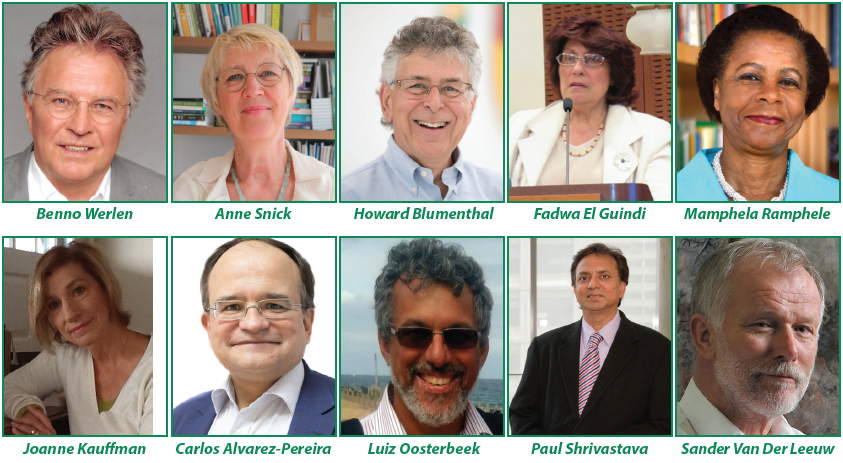
To mobilize knowledge in a more integrated way, it is necessary to push learning beyond the boundaries of fragmented canonical knowledge.
In higher education, it will be helpful to allow for greater flexibility of studying, moving away from conventional, fixed trajectories towards models based on individual preferences and purposes.
Including opportunities for critical learning in study programs will also foster students’ abilities to tackle complex, non-disciplinary problems. The panelists in this session—specialists and members of The Jena Declaration—called for a paradigmatic change in the global sustainability policies. They offered answers to the questions: What should students, faculty, administration, and funders know about the strategies described in The Jena Declaration? How will colleges and universities address these strategies through new curriculum, new departments and centers, or existing structures? What types of relationships are necessary or recommended? How do we evaluate both progress and success?
Paper Presentations
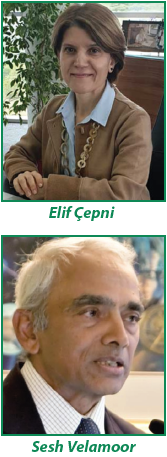

This session featured papers on reimagining education in the post-COVID times. It explored global trends and emerging paradigms and processes in education, the limits of the prevailing concept of rationality, the value of creativity, and the place of technology in the future of education. Imagination has its own noetic or cognitive function. However, rationalist modernism and mass education have led to an imprisonment within the real and the concrete, and robbed us of the capability to reflect and transform ourselves and our relationship with the world. We need to change this state of affairs and revive the imagination. Our future emerges out of a complex interplay of variables in multiple dimensions such as cultural, political, economic, and religious systems. An understanding of such a complex interplay will result in radical changes to the systems of formal education. Academia needs to respond to these emerging conditions with an appropriate toolkit for students to survive and prosper, and to effectively contribute to sustainable social transformation.
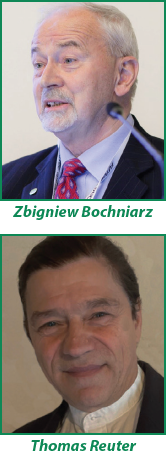
The University Beyond the Walls – ISACCL

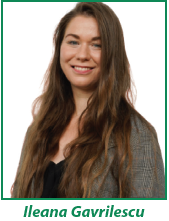
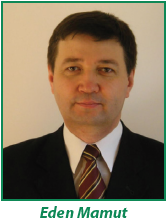
![]() “The University beyond the walls” refers to universities’ engagement in providing services for the society, also called “the third mission” of the university. Numerous publications and policies are devoted to regional development and social cohesion supporting the universities in this initiative. However, most universities have a weak participation in the regions they belong to, being more interested in developing their two essential functions: teaching and research. By developing specialized human capital through teaching and innovative research, universities contribute indirectly to regional development, but not in the expected holistic mode, and not using their full potential. While universities in some parts of the world have adapted their curricula to the problems of the region and developed Master’s degree courses on regional development, many seem less interested in intervening in regional development. They develop entrepreneurial activities in collaboration with economic firms in the region, and rarely develop holistic approaches. The panelists in this session answered the questions: Do universities have to adapt themselves to the demands of the third mission? What are the benefits a university can get from a consistent intervention in regional development? How can governments help universities increase their involvement in the development of these regions?
“The University beyond the walls” refers to universities’ engagement in providing services for the society, also called “the third mission” of the university. Numerous publications and policies are devoted to regional development and social cohesion supporting the universities in this initiative. However, most universities have a weak participation in the regions they belong to, being more interested in developing their two essential functions: teaching and research. By developing specialized human capital through teaching and innovative research, universities contribute indirectly to regional development, but not in the expected holistic mode, and not using their full potential. While universities in some parts of the world have adapted their curricula to the problems of the region and developed Master’s degree courses on regional development, many seem less interested in intervening in regional development. They develop entrepreneurial activities in collaboration with economic firms in the region, and rarely develop holistic approaches. The panelists in this session answered the questions: Do universities have to adapt themselves to the demands of the third mission? What are the benefits a university can get from a consistent intervention in regional development? How can governments help universities increase their involvement in the development of these regions?
Transformative Power of Education for Women’s Leadership

This session engaged women leaders from diverse cultures and continents who are on the frontlines of dealing with crises of human development, conflict and climate change in their countries and in the world. They shared their views regarding a new paradigm for the future of education based on their direct life experiences in mobilising education to transform the crises and challenges they face in their communities. They identified what is missing today and what is needed in education tomorrow to not only respond to but to transform those who are left behind by the current paradigm: especially women, youth, minorities and disabled who are worst affected by poverty, climate crisis and other challenges. The panelists showcased instances of exemplary and collective women’s leadership that catalyse the transformative power of education in innovative, collaborative, co-creative ways, despite all odds, to contribute to human and planetary security. The session underlined the power of basic literacy and relevant, contextual education to radically improve the lives of marginalized groups worldwide.
Education to Meet the Challenges of the 21st Century
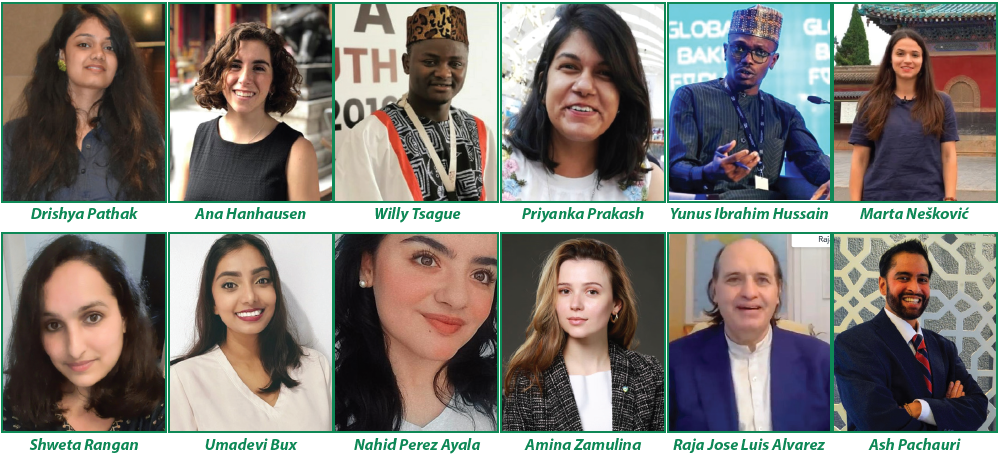
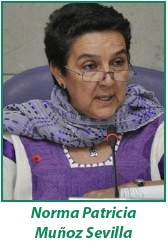
The development of human capital is of primary importance if we are to meet the challenges of the future. In this session, youth leaders gave their unique global perspectives regarding changes needed in the content, pedagogy and delivery systems of global higher education to better prepare the world’s youth with values, knowledge, skills and capacities needed to meet emerging challenges and opportunities. Education needs to differentiate between data, information, knowledge and understanding. However, education in institutions in many parts of the world means learning by rote and reproducing theoretical knowledge. Effective education must lead to understanding and practical application of knowledge that results in sustainable development. Students must be equipped to take initiative and find solutions for the many problems the world faces. Skills of communication, collaboration, critical thinking and creativity need to be inculcated. Education should equip one to answer the questions: How can I create peace? Ensure sustainability? Eliminate poverty? At a fundamental level, education must help one rediscover human values and the value of humanity.
Arts & Education
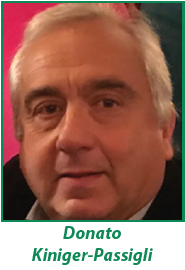
 Arts have always played a predominant role in all civilizations. They provide a freedom of expression that is not found elsewhere. This session involved two distinguished experts in the Arts who spoke about the educational value of the Arts and their role in transforming society.
Arts have always played a predominant role in all civilizations. They provide a freedom of expression that is not found elsewhere. This session involved two distinguished experts in the Arts who spoke about the educational value of the Arts and their role in transforming society.
An education that excludes the Arts provides information, but without the experience that involves the personal, affective dimension. It is the Arts that can provide knowledge, which retains the power of experience. The emotion and exhilaration felt in an exhibition, concert hall or a book overcomes the poverty of experience, which in turn expands and enriches human life. In order to plan for the future, we need an understanding of the past. Our artistic and cultural heritage gives us a better understanding of societal processes. Recognizing the plurality of cultures is fundamental to ensuring social equality, diversity and tolerance. Therefore protecting and promoting culture is essential for human development. In addition to promoting the Arts through formal educational institutions, we need to foster arts in a broader context through artistic experiences in cultural centers, museums, concerts and libraries.
Integration of Arts & Science in Higher Education

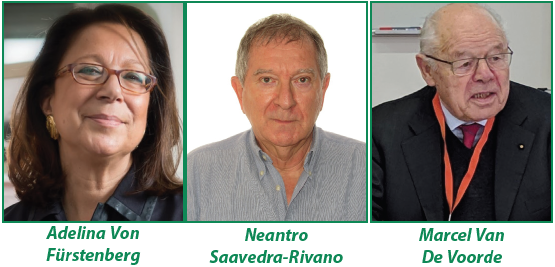
 Solutions to complex, wicked social problems require knowledge which transcends disciplinary boundaries. We need new ways of knowing that integrate multiple perspectives to comprehend the underlying transdisciplinary social processes that govern them. Education, the primary tool for conscious knowledge transfer, can deliver this knowledge by integrating arts and sciences. Integration of Art and Science is not merely an attempt to broaden the range of disciplines of its members, but to foster a marriage of the objective and subjective dimensions of knowledge essential for cracking the ‘genetic code’ of consciousness and social evolution. It reflects the fact that real knowledge is not arrived at independently of universal values.
Solutions to complex, wicked social problems require knowledge which transcends disciplinary boundaries. We need new ways of knowing that integrate multiple perspectives to comprehend the underlying transdisciplinary social processes that govern them. Education, the primary tool for conscious knowledge transfer, can deliver this knowledge by integrating arts and sciences. Integration of Art and Science is not merely an attempt to broaden the range of disciplines of its members, but to foster a marriage of the objective and subjective dimensions of knowledge essential for cracking the ‘genetic code’ of consciousness and social evolution. It reflects the fact that real knowledge is not arrived at independently of universal values.
It is based on the realization that all human knowledge—that of the scientist as well as that of the artist and the theologian—is a social construction of reality and its efficacy depends on the values on which it is based and which it seeks to realize by application of what is known. The speakers in this session agreed on the need to integrate the two streams of knowledge to equip students with the skills and capacities to generate holistic and sustainable solutions for the challenges we face.
List of Contributors |
- Elie ABADIE, Co-chair of the Sadat Congressional Gold Medal Committee; Senior Rabbi of the Jewish Council of the Emirates, UAE
- Raja JOSE LUIS ALVAREZ, President, Maharishi Foundation, Latin America
- Carlos ALVAREZ-PEREIRA, Vice President, Club of Rome (CoR); FWAAS; Member, TJD
- Lene-Rachel ANDERSEN, Author, Publisher & Economist; Member, Club of Rome
- Nahid PEREZ AYALA, POP Trainee Mentor, POP Movement, Mexico
- Kehkashan BASU, Founder & President, Green Hope Foundation
- Shoshana BEKERMAN, Founder & Director, Inter Parliamentary Coalition for Global Ethics; AFWAAS
- Olivia BINA, Principal Researcher, University of Lisbon; FWAAS
- Howard BLUMENTHAL, Founder, Kids on Earth; Producer, Reinventing School, University of Pennsylvania; Member, TJD
- Irina BOKOVA, Director General, UNESCO (2009-2017); FWAAS
- Zbigniew BOCHNIARZ, Professor, Kozminski University, Warsaw, University of Washington & Harvard Business School, USA; Trustee, WAAS
- Mariana BOZESAN, Co-founder and President, AQAL Capital, Germany; FWAAS
- Oana-Elena BRÂNDA, ISACCL Expert; AFWAAS
- Afua BRUCE, Chief Program Officer, DataKind; AAAS If/Then Ambassador
- Umadevi BUX, MD, Co-Founder, Give Foundation Guyana; President, “THE” Society International Chapter-Guyana
- Andrea CARLINO, Artist, Author, Faculty Member, University of Geneva
- Chantal-Line CARPENTIER, Chief, UN Conference on Trade & Development, New York; FWAAS
- Carol CARTER, President & CEO, GlobalMindED; AFWAAS
- Charita L. CASTRO, Director of Labor Affairs, Office of the U.S. Trade Representative (USTR)
- Elif ÇEPNI, Professor, University of Karabuk Business School; AFWAAS
- Matthew CHODKOWSKI, Adjunct Professor, Founding Director, The Institute for Postindustrial Leadership, University of Indianapolis
- Emil CONSTANTINESCU, President, Romania (1996-2000); President, Institute for Advanced Studies in Levant Culture & Civilization; Trustee, WAAS
- Thais CORRAL, Founder of SINAL and School for Agents of Transformation
- Arthur DAHL, President, International Environment Forum, Geneva, Switzerland
- Frank DIXON, Founder, Global System Change; FWAAS
- Piero DOMINICI, Scientific Director, International Research and Education Programme on Human Complex Systems; AFWAAS
- Amanda Natalie ELLIS, Executive Director, Asia Pacific, Global Institute of Sustainability and Innovation, ASU; FWAAS
- María Fernanda ESPINOSA, President, 73rd UN General Assembly, Ecuador; FWAAS
- Rodolfo FIORINI, Emeritus Professor, Politecnico di Milano University; Trustee, WAAS
- Adelina VON FÜRSTENBERG, President and Founder, ART for The World; FWAAS
- Fernando LEÓN GARCÍA, President, International Association of University Presidents (IAUP); President, CETYS University System, Mexico
- Ileana GAVRILESCU, Bergische University of Wuppertal
- Mihai GÎRȚU, Vice-Rector, “Ovidius” University of Constanța
- Jonathan GRANOFF, President, Global Security Institute; FWAAS
- Dan GRIGORESCU, ISACCL Scientific Director
- Maja GROFF, Visiting Professor, Leiden University; Convener, Climate Governance Commission, Global Challenges Foundation (Sweden)
- Fadwa EL GUINDI, University of California, Los Angeles, U.S.A. (Retired); Trustee, WAAS; Member, TJD
- Ameenah GURIB-FAKIM, President of Mauritius (2015-2018); FWAAS
- Ana HANHAUSEN, POP Honorary Mentor, Mexico
- Jon HANS-COETZER, Academic Dean, EU Business School Online Campus
- Isabelle HAU, Impact Funder
- Richard HELLMAN, Environmental Consultant; Attorney; President, Friends of UNEP USA and Middle East Research Center Ltd.
- Hazel HENDERSON, Founder of Ethical Markets Media, USA; FWAAS
- Sue HENDERSON, President, New Jersey City University
- Yi HENG-CHENG, Professor, Tongji University, Shanghai, China; FWAAS
- Erich HOEDL, Former Rector, Wuppertal University and The Graz University of Technology; Trustee, WAAS
- Yunus Ibrahim HUSSAIN, Student, Development Advocate, SDGs Program Coordinator, NGIC Young Leader, Nigeria
- Garry JACOBS, President & CEO, World Academy of Art & Science
- Zahira KAMAL, First Women’s Affairs Minister, Palestine; First Woman Secretary General, FIDA
- Joanne KAUFFMAN, Independent Expert, Sustainability Science, Massachusetts Institute of Technology (MIT) (Retired); Member, TJD
- Sujata KHANDEKAR, Co-founder, Grassroots Leadership Academy
- Donato KINIGER-PASSIGLI, Vice President, World Academy of Art & Science
- Witold KINSNER, Professor, University of Manitoba; FWAAS
- Phoebe KOUNDOURI, President-elect, European Association of Environmental and Resource Economists; FWAAS
- Petra KUENKEL, Member, Executive Committee, Club of Rome
- Pilar ALVAREZ LASO, Assistant Director General of UNESCO for Human and Social Sciences (2010-2013); Head of UNESCO in Haiti and Uzbekistan
- Sander VAN DER LEEUW, Director of the ASU-SFI Center for Biosocial Complex Systems, Arizona State University; Member, TJD
- Grazyna LEŚNIAK-ŁEBKOWSKA, Professor, Warsaw School of Economics, Poland; AFWAAS
- Joshua LINCOLN, Senior Fellow, Fletcher School of Diplomacy, Tufts University; former Chief of Staff to UN Executive Secretary, UN Commission for Europe
- Augusto LOPEZ-CLAROS, Executive Director, Global Governance Forum
- Pavel LUKSHA, Founder & Director, Global Education Futures Initiative; AFWAAS
- Eden MAMUT, Secretary General, Black Sea Universities Network
- Rama MANI, Convenor, Enacting Global Transformation, University of Oxford; FWAAS
- Francisco MARMOLEJO, President of Higher Education, Qatar Foundation for Education, Science and Community Development
- Federico MAYOR, Director General, UNESCO (1987-1999); FWAAS
- Peta MILAN, Director, Transcendent Media Capital; AFWAAS
- Danilo SANTOS DE MIRANDA, Sao Paolo Director of the Serviço Social do Comércio (SESC); FWAAS
- Wafik MOUSTAFA, Founder and Chairman of the Conservative Arab Network, UK
- Marta NEŠKOVIĆ, Research Associate, Institute of Political Studies, Belgrade; JFWAAS
- Nebojsa NEŠKOVIĆ, Secretary General, WAAS
- Joanna NURSE, Strategic Advisor, InterAction Council
- Luiz OOSTERBEEK, UNESCO Chair Humanities and Cultural Landscape Management; Member, TJD
- Ash PACHAURI, Senior Mentor, POP Movement; AFWAAS
- Drishya PATHAK, POP Youth Mentor / Research Associate
- Priyanka PRAKASH, Program Director / Honorary Youth Mentor, Ervis Foundation / The POP Movement, UAE/ India
- Remus PRICOPIE, President, World University Consortium; Trustee, WAAS
- Jean MAX RAKOTOMAMONJY, former Speaker of Parliament of Madagascar
- Janani RAMANATHAN, Senior Research Fellow, Mother’s Service Society, India; Trustee, WAAS
- Mamphela RAMPHELE, Co-President, Club of Rome; FWAAS
- Shweta RANGAN, Research Fellow, Mother’s Service Society, India
- Ranjani RAVI, Associate Editor, Cadmus; AFWAAS
- Thomas REUTER, Professor, University of Melbourne, Australia; Trustee, WAAS
- Darynell RODRIGUEZ, Former Executive Director, Global Partnership for the Prevention of Armed Conflict
- Neantro SAAVEDRA-RIVANO, Professor Emeritus, University of Tsukuba, Japan; FWAAS
- Peter SCHLOSSER, Vice President and Vice Provost, Arizona State University
- Ullica SEGERSTRÅLE, Professor, Illinois Institute of Technology; FWAAS
- Ismail SERAGELDIN, Co-Chair, Nizami Ganjavi International Center (NGIC), FWAAS
- Norma PATRICIA MUÑOZ SEVILLA, POP Honorary Distinguished Mentor; President, Climate Change Council, Mexico
- Kakha SHENGELIA, Chairman, International Association of University Presidents (IAUP); President, Caucasus University; FWAAS
- Tim SHEPHARD, Vice President, Business Development Strategy & Operations, Lockheed Martin Space
- Paul SHRIVASTAVA, Director, Sustainability Institute; Chief Sustainability Officer, Pennsylvania State University; Member, CoR & TJD
- Anne SNICK, Transdisciplinary Education in STEAM, KU University Leuven; Member, Club of Rome; FWAAS; Member, TJD
- Carol SPALDING, President, Rowan-Cabarrus Community College, USA; FWAAS
- Susan SWAYZE, Founder, Diversity Think Tank
- Paula GARCIA TODD, Global Strategic Manager, International Flavors & Fragrances (IFF)
- Willy TSAGUE, POP Youth Mentor, POP Movement, Cameroon
- Mariona CARDONA VALLÈS, Coordinator for Crisis Management and Multilateral Affairs, University of Catalunya
- Jeffrey VARGAS, President and CEO, Generationology LLC
- Sesh VELAMOOR, Director of Programs, Foundation for the Future; FWAAS
- Christine VOLKMANN, UNESCO Chair, Entrepreneurship and Intercultural Management at the Schumpeter School of Business and Economics, University of Wuppertal
- Marcel VAN DE VOORDE, Professor, University of Technology Delft; Trustee, WAAS
- Vesna VUČINIĆ, Faculty of Philosophy, University of Belgrade; FWAAS
- Isabelle WACHSMUTH, Project Manager, Art Impact For Health and SDGs initiative, WHO; AFWAAS
- Benno WERLEN, Chair of The Jena Declaration (TJD); FWAAS
- Ralph WOLFF, Founder and former President, The Quality Assurance Commons; FWAAS
- Munera YOUSUFZADA, Former Deputy Minister of Defence & Deputy Governor of Kabul; Artist & Poet
- Denys ZACHAROPOULOS, Art Historian & theorist; Professor of Art History
- Amina ZAMULINA, International Data Privacy Specialist, Sberbank of Russia, Russia
- Aleksander ZIDANŠEK, Professor, Jožef Stefan International Postgraduate School; Trustee, WAAS
- Moneef R. ZOU’BI, Director General, Islamic World Academy of Sciences, Jordan (1998-2019); Trustee, WAAS
- Alberto ZUCCONI, Chairman of the Board, WAAS; Secretary General, World University Consortium

